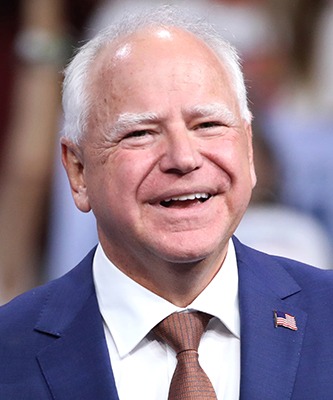Modern governance has largely become an exercise in spectacle over substance, ambition over humility, and deceit over truth. Societies increasingly reward those who shout loudest, spend lavishly, and manipulate effortlessly. Such leaders inevitably place personal ambition above public service, destabilizing societies and eroding trust in institutions. Historical and contemporary examples illustrate this folly.
Rome’s decline was accelerated by decadent emperors prioritizing personal luxury over civic responsibility. European monarchies fell victim to incompetent rulers disconnected from their subjects’ suffering. Today, Vladimir Putin’s Russia demonstrates how unchecked ambition devastates societies. Kim Jong Un’s North Korea exemplifies tyranny born from unchecked ego, reducing citizens to desperate servitude while the ruler’s mythology expands grotesquely.
Many Indigenous traditions warn of a predatory force that consumes without limit—the Cree speak of Weitigo, the Anishinaabe of Wiindigo, and the Hopi of Ee Eepa. This is the dominator spirit, a sickness of the soul that sees others not as kin but as resources to be drained. It is the mindset that subjugates, hoards, and feeds endlessly on the vitality of those beneath it. Leaders afflicted with this disease do not serve; they devour. They extract obedience instead of inspiring trust, enforce hierarchy instead of fostering harmony, and leave in their wake a hollowed-out people—drained, demoralized, and reduced to mere functionaries in the leader’s endless hunger for control.
The Iroquois Confederacy entrusted elder women with selecting and removing chiefs based on performance and integrity. The Lakota emphasized generosity, humility, and service, explicitly disqualifying overtly ambitious individuals from leadership roles. This affirms the perennial truth: those desperately craving power are precisely those least suitable to wield it. Ambition itself must become grounds for suspicion, not acclaim. Leadership selection must prioritize demonstrated service, proven competence, and clear humility rather than charisma, wealth, or propaganda prowess. This demands transparency, robust accountability mechanisms, and strict limitations on power tenure.
Leadership demands humility and self-restraint. It is service to others—not dominion over them. Effective leaders listen more than they dictate, prioritize truth over ideological convenience, and accept limitations rather than dismantle protective institution Compassion is equally vital, constituting the very essence of effective leadership.
Compassion is neither weakness nor mere charity—it is recognizing every policy decision’s human cost. Compassion underpins lasting social stability. Franklin D. Roosevelt’s New Deal policies—Social Security, labor protections, public works—demonstrated compassion’s pragmatic strength. Institutionalizing compassion ensures that public resources genuinely prioritize human well-being over abstract economic metrics.
Compassion-driven governance creates healthcare systems dedicated to healing, criminal justice systems aimed at rehabilitation, and economic policies valuing human dignity above profit margins. It guards society against systemic sociopathy masked as pragmatism.
Central to effective leadership is an uncompromising commitment to truth. Societies abandoning truth descend inevitably into chaos. Hannah Arendt warned that tyrannies thrive by destroying the public’s capacity to distinguish truth from falsehood, right from wrong, creating populations easily manipulated and controlled. Nazi Germany’s “big lie” tactic, Soviet Union’s shifting official truths, and recent American political misinformation exemplify how truth erosion destroys democracy, rational governance, and public trust. Laws become arbitrary, citizens grow cynical, and force replaces reason. The restoration of truth as governance’s cornerstone requires stringent accountability for dishonesty. Lies from public officials must incur severe and tangible consequences. Institutions spreading misinformation for profit must face meaningful penalties. Truth is essential to democracy.
Lastly, public office must be shielded from wealth’s distorting influence. Wealth inherently breeds entitlement, erodes empathy, and risks converting governance into private enterprise. Ancient Athens used lottery systems, and Rome demanded senators bear personal costs to ensure public service remained untainted by financial interests. Today, similar safeguards are urgently needed. Limiting public service eligibility based on wealth ensures governance reflects public interests, not a vehicle for personal enrichment.
Leadership is neither entitlement nor privilege—it is duty. Effective governance demands humility, compassion, truth, and financial modesty. Without these pillars, societies remain vulnerable to tyranny, corruption, and decay. The stakes are high, as global crises multiply and leadership decisions impact generations
THEREFORE, under Folklaw:
No individual who aggressively seeks power shall hold public office. Leadership roles must be filled based on demonstrated service, competence, and community recognition rather than personal ambition.
Leaders found to knowingly enact policies increasing human suffering, undermine truth, or prioritize personal loyalty over public good shall be immediately removed and permanently barred from office.
Public office eligibility shall exclude individuals whose net worth exceeds ten times that of the average citizen they would lead, ensuring governance remains dedicated to public rather than personal enrichment.
Resolution
RESOLUTION TO LIMIT THE WEALTH OF PUBLIC SERVANTS
Those who accumulate excessive wealth should not be allowed to hold public office. The pursuit of money alters the psyche, fostering entitlement, diminishing empathy, and increasing the likelihood of corruption. When the wealthy govern, they do so with their own class interests in mind, prioritizing policies that preserve their fortunes rather than serve the common good. Public office should be a responsibility, not a business opportunity.
WHEREAS the human mind is not immune to the effects of wealth. Studies repeatedly show that as net worth increases, so does a sense of entitlement. The wealthy begin to view themselves as exceptional, superior, deserving of special treatment. Their interactions with the world shift: rules become optional, obligations to others fade, and the idea of public service as self-sacrifice gives way to a vision of governance as self-enrichment. A 2012 study by psychologists Paul Piff and Dacher Keltner found that affluent individuals are more likely to lie, cheat, and break ethical norms than their less wealthy counterparts. Money, rather than liberating people from greed, often deepens it.
WHEREAS wealth distorts the mind, breeding entitlement and eroding empathy. Those who accumulate vast fortunes begin to see the world as something to be owned, not shared. When such individuals enter public office, their instincts for accumulation do not vanish—they simply find new outlets.
WHEREAS the results of putting such people in charge are as predictable as they are disastrous. Vladimir Putin entered public office as a mid-level bureaucrat and is now rumored to be one of the wealthiest men in the world, his fortune hidden behind layers of oligarchic proxies. Donald Trump, in office, funneled government business into his properties, while his post-presidency has been marked by continued financial entanglements, including questionable negotiations involving the Saudi-backed LIV Golf league. Senator Bob Menendez stashed gold bars and wads of cash in his home, a living caricature of the politician-as-criminal. From Moscow to Washington to the smallest municipal office, the story is the same: wealth seeks more wealth, and public trust is the price.
WHEREAS the temptation of graft is obvious. A public servant worth ten, twenty, or a hundred times more than the people they serve is living in a different world, one where wealth protects against consequences. For such individuals, the decisions of government become abstract: a budget cut to social services is not a lost meal; an eviction policy is not a personal risk. Policies favoring the rich cease to be ideological debates and instead become matters of self-preservation.
WHEREAS in ancient Athens, public officials were chosen by lottery to prevent power from concentrating among the wealthy. In Rome, senators were expected to serve at their own expense, limiting corruption by ensuring that governance was a duty rather than a profit-making venture. Today, however, no such safeguards exist. Wealthy individuals enter office, pass laws favorable to their class, then exit richer than before.
WHEREAS restrictions on public service already exist: convicted felons are often barred from holding office, and conflict-of-interest laws are commonplace. The idea that financial conflicts of interest should be taken as seriously as criminal ones is not radical—it is common sense. The alternative is a government perpetually for sale to the highest bidder.
Therefore, under Folklaw: Those whose net worth exceeds ten times that of the median citizen they would serve shall be prohibited from holding public office. Public service must be a duty, not a means of further wealth accumulation.
Fact Check
Fact-Checking the Claim: “Power must never be entrusted to those who seek it. The wise leader is the reluctant one, dragged into service by necessity, not ambition.”
This claim suggests that the best leaders are those who do not actively seek power, and that societies allowing ambitious individuals to seize leadership often suffer the consequences. To fact-check this, we’ll explore historical patterns, political science research, and psychological studies on leadership and ambition.
1. Does Power Corrupt?
✅ Verdict: Largely True (Certainty: 90%)
The phrase “Power tends to corrupt, and absolute power corrupts absolutely” (Lord Acton, 1887) is widely cited, but does it hold up under scrutiny?
Psychological Studies on Power and Corruption
The Stanford Prison Experiment (1971) by Philip Zimbardo demonstrated how quickly power can corrupt individuals, even in simulated environments.
Dacher Keltner (UC Berkeley) found in multiple studies that individuals in positions of power tend to develop lower levels of empathy, increased impulsiveness, and greater ethical blind spots.
Paul Piff’s research (2012) showed that wealthier individuals and those in leadership positions are statistically more likely to engage in unethical behavior.
Historical Examples of Power Corrupting Leaders
Napoleon Bonaparte: Rose as a champion of the French Republic, but once in power, declared himself Emperor, dismantling democracy.
Joseph Stalin: Initially positioned as Lenin’s successor to ensure stability, he instead centralized power, purged opposition, and ruled through terror.
Vladimir Putin: Rose as a “reformer” but gradually eliminated democratic institutions, extended his rule indefinitely, and turned Russia into an autocracy.
Key Takeaway: The more power a leader accumulates, the less likely they are to act in the public interest.
2. Are Reluctant Leaders Better?
✅ Verdict: Mostly True (Certainty: 85%)
Many historical examples suggest that reluctant leaders tend to govern more wisely and justly than those who aggressively seek power.
Examples of Reluctant Leaders Who Excelled
George Washington (USA): Initially resisted becoming president and voluntarily stepped down after two terms, setting the precedent for democratic leadership.
Cincinnatus (Ancient Rome): A Roman statesman who was given absolute power in a time of crisis but voluntarily relinquished it after resolving the threat.
Nelson Mandela (South Africa): After decades of imprisonment, he took power reluctantly, emphasizing reconciliation over revenge.
Leaders Who Seized Power and Became Tyrants
Julius Caesar (Rome): Rose through ambition, dismantled the Republic, and was assassinated for his authoritarian rule.
Adolf Hitler (Germany): Used democracy to gain power before dismantling it and ruling through fear.
Kim Jong Un (North Korea): Continues a hereditary dictatorship, sustaining power through propaganda and repression.
Key Takeaway: Reluctant leaders historically focus more on governance, while ambitious ones often prioritize self-interest.
3. Do Democracies Reward Narcissistic Leaders?
✅ Verdict: Increasingly True (Certainty: 80%)
Modern democratic systems often reward charismatic, attention-seeking figures rather than the most competent or ethical individuals.
Research on Political Narcissism
A 2016 study from Psychological Science found that narcissistic individuals are more likely to seek and attain leadership positions.
Jean Twenge (San Diego State University) found that modern political systems increasingly favor self-promoters over substance-driven candidates.
Modern Examples of Performative Leadership Over Competence
Donald Trump (USA): Built his leadership on spectacle, personal branding, and loyalty over governance.
Boris Johnson (UK): Gained power through charisma and populism, but his tenure was marked by scandals and mismanagement.
Jair Bolsonaro (Brazil): Relied on strongman rhetoric while neglecting governance, especially during the COVID-19 crisis.
Key Takeaway: Contemporary politics rewards those who self-promote rather than those who are qualified.
4. Did Indigenous Cultures Select Leaders Differently?
✅ Verdict: True (Certainty: 95%)
Many Indigenous societies actively avoided leaders who sought power and instead chose them based on wisdom and service.
Examples of Indigenous Leadership Structures
Iroquois Confederacy: Leaders were nominated by clan mothers and could be removed if they failed to serve the people.
Lakota Sioux: Leadership was based on wisdom, generosity, and community service rather than personal ambition.
Zulu Nation (Pre-Colonial Era): Chiefs were selected based on merit, often judged by elders rather than self-promotion.
Key Takeaway: Historically, societies that carefully selected leaders based on service rather than ambition had more stable governance.
Final Verdict:
✅ Power often corrupts, and the more a leader seeks it, the more dangerous they tend to become.
✅ Reluctant leaders historically govern more wisely than those who aggressively seek power.
✅ Modern democracies increasingly reward narcissistic, performative leadership over competence.
✅ Indigenous cultures often selected leaders based on wisdom and service, avoiding self-promoters.
Possible Solutions:
Require leaders to be nominated by their communities rather than self-nominating.
️ Implement term limits to prevent power consolidation.
️ Create accountability structures to remove self-serving leaders.
⚖️ Make leadership a responsibility rather than a status symbol.





Discussions
There are no discussions yet.